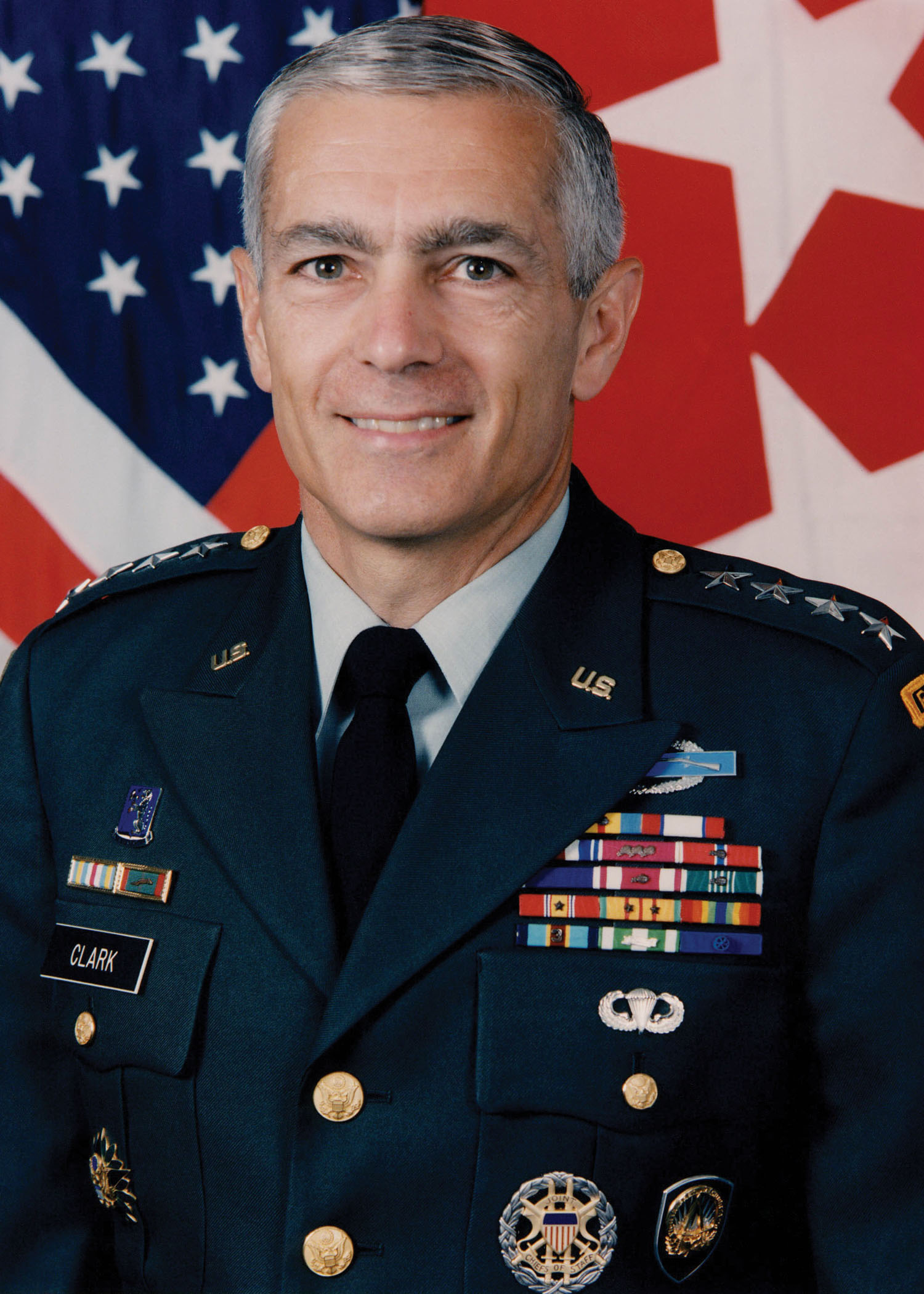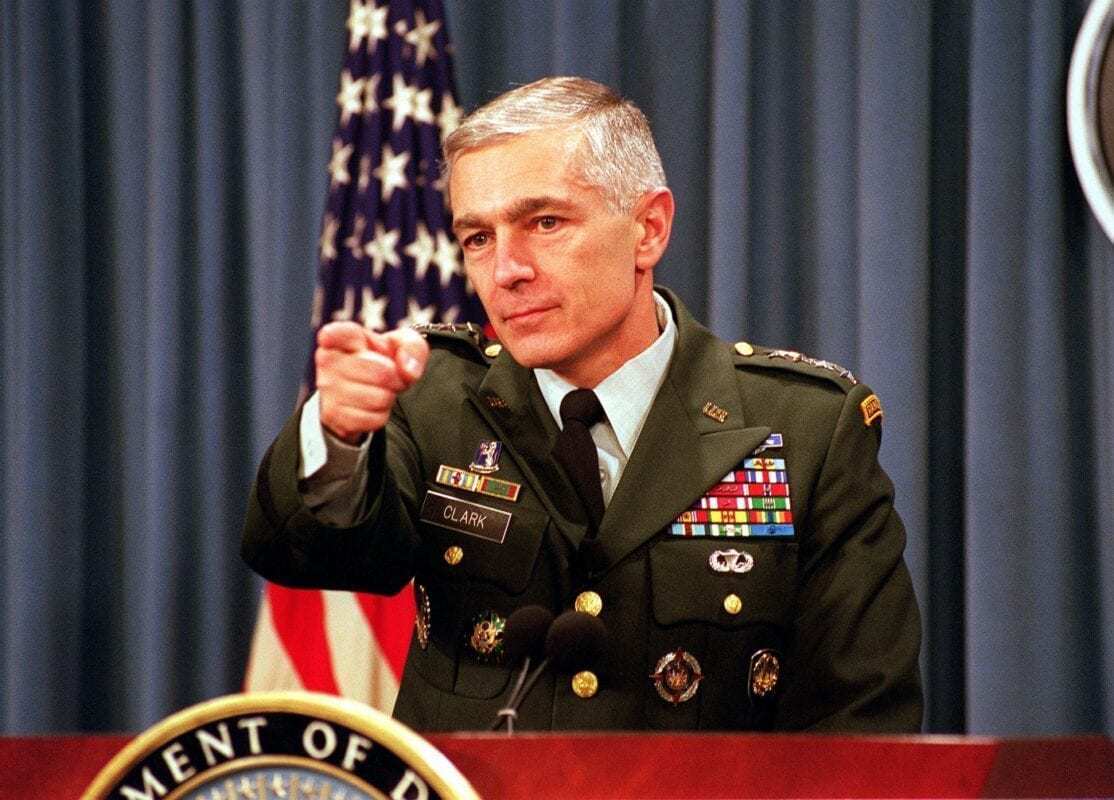A Comprehensive Biography And Career Overview
Wesley Clark is a name synonymous with military leadership and strategic insight, often recognized for his pivotal role in NATO operations during the Kosovo War. With a career that spans decades in both military and political arenas, Clark has made significant contributions to defense strategy and international relations. In this article, we will delve into his biography, career milestones, and the impact he has had on modern military practices.
Born on December 23, 1944, in Chicago, Illinois, Wesley K. Clark grew up with a strong sense of duty and an adventurous spirit. His educational background, including a Rhodes Scholarship, laid the foundation for a distinguished military career. As a four-star general in the United States Army, he commanded NATO forces during the Kosovo War, showcasing his exceptional leadership abilities and strategic acumen.
This article will explore various aspects of Wesley Clark's life, including his early years, military career, political endeavors, and his contributions to global peacekeeping efforts. As we navigate through his achievements, readers will gain a deeper understanding of his influence and the lessons that can be learned from his experiences.
Table of Contents
Biography of Wesley Clark
Wesley K. Clark is a prominent figure in American military history, known for his strategic leadership and commitment to international peace. After graduating from the United States Military Academy at West Point, Clark began his military career, which would span over three decades.
| Full Name | Wesley Kenneth Clark |
|---|---|
| Date of Birth | December 23, 1944 |
| Place of Birth | Chicago, Illinois, USA |
| Rank | General (four-star) |
| Service Years | 1966 – 2000 |
| Notable Command | Supreme Allied Commander Europe (SACEUR) |
| Political Party | Democratic Party |
Early Life and Education
Wesley Clark grew up in a family that valued education and service. He attended the United States Military Academy at West Point, where he graduated in 1966. His academic excellence earned him a Rhodes Scholarship, allowing him to study at the University of Oxford, where he earned a degree in Philosophy, Politics, and Economics.
Key Educational Highlights
- Graduated from West Point in 1966
- Awarded a Rhodes Scholarship
- Studied at the University of Oxford
Military Career
Clark's military career began in the Vietnam War, where he served as an armored cavalry officer. Over the years, he held various leadership positions, including commanding the 1st Brigade, 2nd Armored Division, and later serving in key roles in the Pentagon. His rise through the ranks was marked by his keen strategic insights and ability to lead diverse teams.
Major Milestones
- Served in the Vietnam War
- Held various command positions in Europe and the U.S.
- Promoted to four-star general in 1996
NATO Command and Kosovo War
One of the defining moments of Clark's career came when he was appointed as the Supreme Allied Commander Europe (SACEUR) in 1997. During this time, he led NATO forces in the Kosovo War, a conflict that highlighted the importance of multinational military collaboration and strategic air power.
Key Contributions During the Kosovo War
- Developed a comprehensive military strategy that involved air strikes against Serbian forces.
- Played a crucial role in the diplomatic negotiations that led to the end of the conflict.
- Emphasized the need for humanitarian intervention in the face of ethnic cleansing.
Political Endeavors
After retiring from the military, Wesley Clark ventured into politics, running for the Democratic nomination for President in 2004. Although he did not secure the nomination, his campaign brought attention to issues of national security and military policy.
Political Campaign Highlights
- Emphasized the need for a strong military while advocating for diplomatic solutions.
- Focused on veterans' issues and the importance of their well-being.
- Promoted a new approach to foreign policy based on cooperation and diplomacy.
Post-Military Activities
Following his political campaign, Clark continued to be an influential voice in military and foreign policy discussions. He has been involved in various think tanks and advisory boards, providing insights based on his extensive experience in military leadership.
Key Post-Military Roles
- Served as a military analyst for various news networks.
- Involved with organizations focused on international relations and security.
- Authored books on military strategy and leadership.
Impact and Legacy
Wesley Clark's influence extends beyond his military and political career. His advocacy for humanitarian intervention and strategic military collaboration has shaped contemporary discussions on national security. Through his writings and public speaking, he continues to inspire future generations of leaders.
Enduring Contributions
- Advocated for a balanced approach to military intervention.
- Promoted the importance of diplomacy in resolving conflicts.
- Encouraged collaboration between military and civilian sectors for national security.
Conclusion
In summary, Wesley Clark's life and career exemplify the qualities of a true leader. From his early education to his remarkable military service and political endeavors, Clark has left an indelible mark on American military history. His insights on international relations and security continue to resonate, urging us to consider the balance between military action and diplomatic solutions. We encourage readers to reflect on his contributions and engage in discussions about the future of military strategy and peacekeeping efforts.
Feel free to leave your comments below, share this article with others, or explore more insightful content on our site!
Thank you for reading, and we hope to see you back here for more engaging articles!
Also Read
Article Recommendations



ncG1vNJzZmivp6x7tMHRr6CvmZynsrS71KuanqtemLyue9Oop6edp6h%2BdnvWnqqlnalisK2t0aRloaydoQ%3D%3D
